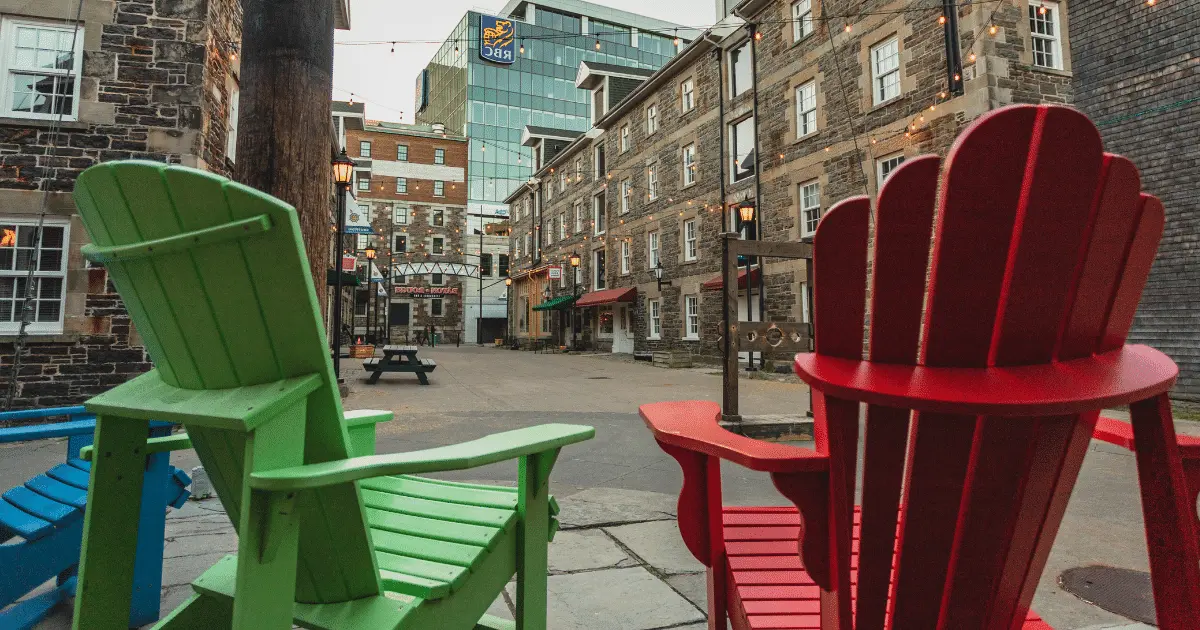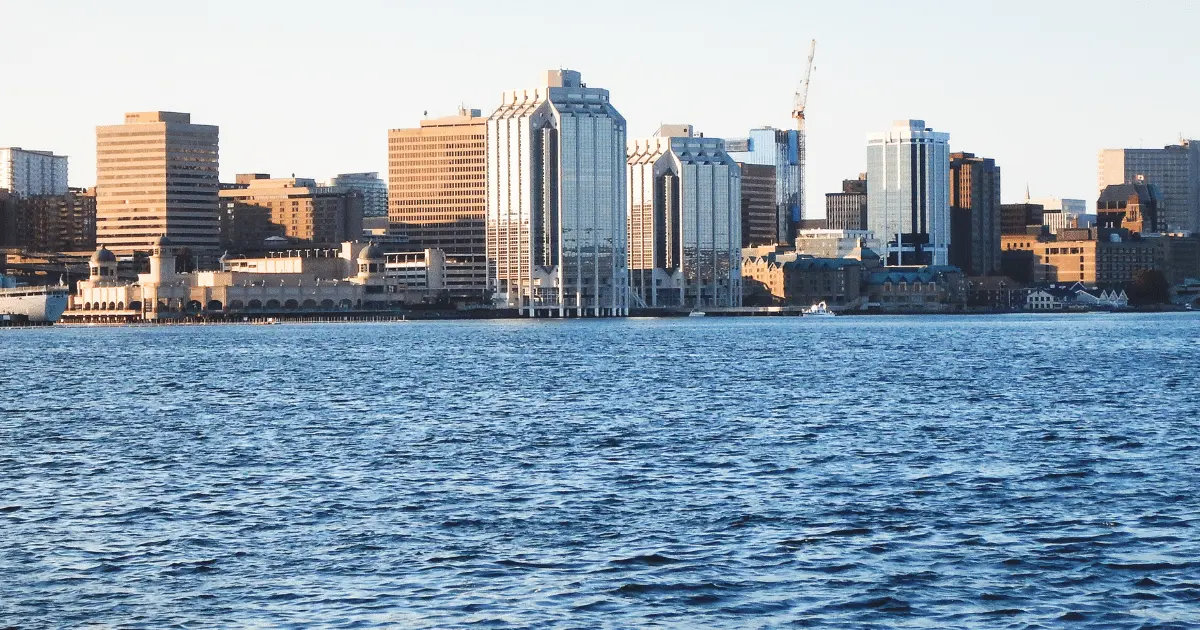Halifax is the capital of the province of Nova Scotia in Canada. This Halifax is not to be confused with the one in the United Kingdom, and it even happens to be the largest municipality in Nova Scotia. Halifax is the perfect place for outdoor lovers, with access to the ocean, great hiking and biking trails, and more.
It isn’t as busy as large cities like Vancouver, but the overall cost of living is slightly more expensive than in other smaller cities. For further information on the particulars of Halifax, keep reading. We’ll cover almost everything about Halifax, so you can have a comprehensive guide handy as you make such an important and exciting decision.
The History Of Halifax

Before the British took over Nova Scotia, these lands were occupied by the Mi’kmaq, Native American people. In 1713, the British arrived, assuming control of these lands and permanently settling in what would soon be called Halifax. The town, initially called Chebucto, became Halifax after a man called George Montagu Dunk, who was the 2nd earl of Halifax and helped found the settlement.
The Overall Feel Of Halifax
Halifax is quite a municipality with an active nightlife and several restaurants, art places, and fun places for you to go to. The weather in Halifax is excellent too. Winters won’t cause you to pile sweaters upon sweaters to warm yourself. Summers won’t have you sweating bullets.
The weather has definitely been a winner for many locals. Because of the vast number of universities and majors that graduate students every year, jobs are a bit hard to come by. It gets competitive. Compared to other smaller cities, pay in Halifax is smaller, but it’s better than the average pay in Vancouver and other large cities.
Moreover, Halifax’s job market for IT and similar jobs isn’t that vast. As for the environment, Halifax is home to several friendly neighborhoods. Most people are kind and friendly, and there will always be some who aren’t, but, for the most part, Halifax is a kind place with friendly communities.
What You Need To Know About Halifax
Let’s discuss everything you need to know about Halifax, including the specifics about the housing market, healthcare, and more.
1. Unemployment Rate
In Nova Scotia, the unemployment rate as of April 2022 was 6.3%. This rate lowered by 0.4% when compared to the previous month. This means that there was an increase of around 3,000 jobs in April.
This rate is even a record low for the province, which is a good sign for its various industries. Halifax, in particular, has an unemployment rate of 4.9, which decreased by 0.5% compared to the previous month. Based on that statistic, a total of 3,700 jobs, both part-time and full-time, were seen in April.
2. Crime Rate
As of 2019, crime rates in Nova Scotia have lowered. Halifax’s crime rate shows that there are 4.925 incidents per 100,000 people. As for Nova Scotia, the rate is 5,255 per 100,000 people. Many locals would say that Halifax has a moderate crime rate and is relatively safe.
The overall crime rate of Halifax is below the national average showing just how safe this municipality is. It is not the safest city, but it also isn’t the most dangerous one. When ranked, it belongs in the middle of the list.
3. Education
Halifax’s educational system is the same as other municipalities in Nova Scotia. Most residents choose to attend public school, although there are several private schools within the area for those who prefer it. Children can go to school and start primary at the age of 5.
This marks the beginning of their elementary schooling. Once they’ve completed primary, they continue to Grade 1 until Grade 6. After elementary school, they attend junior high school and then high school.
Junior high school is from grades 7 to 9, while high school is from grades 10 to 12. 4th to 9th-grade students are required to learn French; however, learning the language becomes optional once they reach high school. Once they’ve finished high school, they can choose how they’d like to continue or whether they’d like to stop.
They can continue by attending a university, a community college, or through an apprenticeship. They are free to leave if they do not want post-secondary education.
Teachers in all classes must be qualified and have a university degree and training in education. You can look for the perfect school for your child through the Halifax Regional Centre for Education.
4. Housing Cost
In April 2022, the average price of a home was $528,100, which shows a 37.9% increase from last month’s rate. The housing market in Halifax is a bit limited, with only 229 homes listed last winter. According to a Century 21 realtor, that number is incredibly low.
Halifax’s average prices of homes continue to rise as demand increases and supply remains limited. The average price of a single-family detached home is around $569,100, which has increased by 16.7% in the past few months. On the other hand, a condominium or apartment costs, on average, $411,000, and this price also increased by 21.2%.
5. Healthcare
Eligible residents can avail of the Nova Scotia Health Card provided by the government. This Health Insurance Program covers medical services, including hospital visits, doctor visits, dental and optometric appointments, and more. To ensure that your health care will cover the services you’re availing of, you’ll need to bring the card with you everywhere you go and present it to a physician or one of the hospital staff.
If you’re interested, here’s how to learn more about the Nova Scotia Health Card. Register for a health card by contacting the MSI registration department. Their number is 902-496-7008 or 1-800-563-8880.
These are toll-free if you live in Canada. Contact either of these numbers to apply for your health card. You must prove that you’ve enrolled in said university or college if you are studying abroad. Fax the proof to their office to ensure that you’ll continue to have health coverage despite not physically living in Nova Scotia.
Let’s Summarize These Stats
| Unemployment Rate | Crime Rate | Education | Housing Costs | Healthcare |
| Nova Scotia in general has an unemployment rate of 6.3% as of April 2022 | 4.925 incidents per 100,000 people in Halifax | There are both public and private schools | The average price of a home is $528,100 | Eligible residents may avail of the Nova Scotia Health Card |
| Halifax has an unemployment rate of 4.9% | Overall crime rate is below the national average | At the age of 5, students enter the primary. Afterward, they go to elementary school until Grade 6 and junior high school until Grade 9. | Halifax has limited homes for sale | The health program covers services such as doctor visits and dentist and optometrist services. |
| Halifax’s unemployment rate decreased by 0.5% | 10th to 12th graders are in high school and then, they graduate and may choose to pursue a post-secondary education | Single-family detached homes cost around $569,100, and condos cost around $411,000 |
Pros Of Living In Halifax

Here are some pros of living in Halifax to help you decide.
1. Great Temperature
Halifax has a great climate. Summers aren’t too warm, and winters aren’t too cold.
The temperature is often just right. Sometimes you’ll complain about the weather or feel uncomfortable, but you’ll mostly enjoy Halifax’s climate.
2. Active Nightlife
Halifax also has quite the nightlife. There are fun activities and places you can go to, and many people, especially college students, enjoy visiting restaurants or some of the bars in the city.
Cons Of Living In Halifax
Now, it’s time to weigh the cons.
1. Competitive Job Market
Halifax’s job market is competitive. With thousands of students graduating with degrees each year in the many colleges and universities in Nova Scotia, the job market is bound to be competitive.
To be honest, every job market is competitive. The only problem with this one is it seems more complex to find a job because Halifax doesn’t have an incredibly vast job market.
2. Bad Housing Market
There’s been a low supply of homes recently which has caused the average price of a home to skyrocket. If you catch the market at the right time, you might be able to buy a home for cheap. Most of the time, you’ll be hard-pressed to find a cheap one.
There are cheaper options in other cities. Demand is high, and the supply can’t catch up.
The Final Verdict
Halifax, despite its competitive job market and low supply of homes, Halifax has several pros that might tick off a lot of your must-haves. You’ll have access to beaches and the great outdoors. You’ll be living in a city with generally friendly people. Halifax is worth it.
You just have to ensure you have a job lined up and a home to live in once you move. You have to plan this out. As much as spontaneity is exciting and fun, there’s a practicality to having fun. Make sure you’re sure of your decision and have planned everything.
Check Out: 10 Largest Cities in Canada and 20 Most Dangerous Cities in Canada.

Leave a Reply